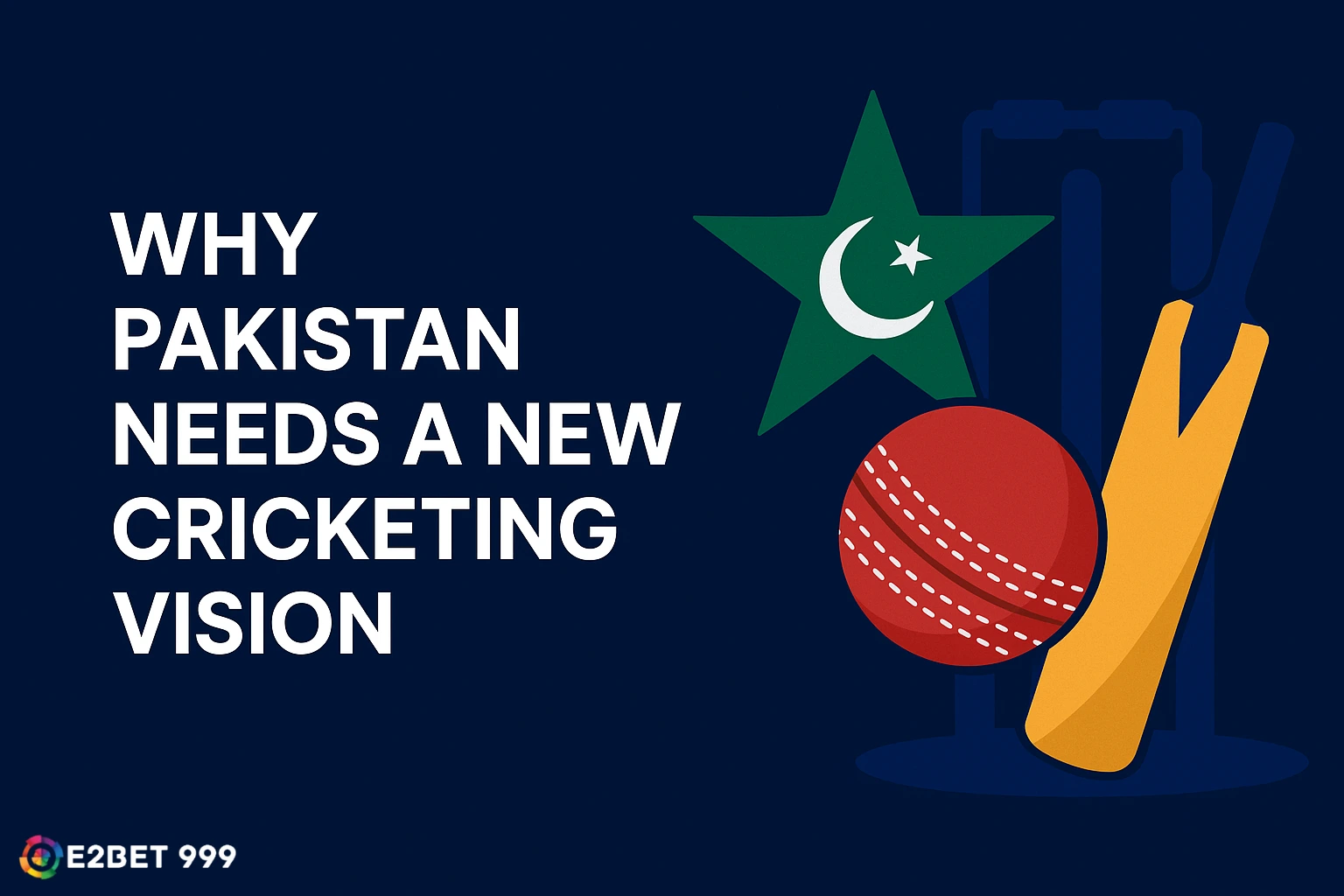In Pakistan, cricket is a love that binds millions of people together, not simply a sport. From the bustling streets of Karachi to the serene valleys of the north, cricket is woven into the fabric of Pakistani culture. Pakistani cricket, however, is at a turning point despite this passion. To rise again as a consistent global powerhouse, Pakistan needs a fresh, focused cricketing vision that addresses current challenges and leverages modern advancements.
The Significance of Cricket in Pakistan
Cricket in Pakistan is more than just a game; it’s an emotion. It can bring the nation together in moments of joy and hope. The country has produced legendary cricketers like Imran Khan, Wasim Akram, and Javed Miandad, who have left an indelible mark on world cricket. However, passion alone cannot secure sustained success. A strategic vision is necessary to navigate the complexities of modern cricket.
Current Challenges Faced by Pakistan Cricket
While the Pakistan cricket team showcases immense talent, it often struggles with consistency. Frequent administrative changes, a lack of robust domestic structures, and a limited focus on fitness and mental health are some of the glaring issues. This leads to unpredictable performances and missed opportunities on the world stage.

Why a New Vision is Necessary
Cricket has evolved dramatically. T20 leagues, data-driven strategies, advanced training methods, and mental conditioning define the modern game. Without a comprehensive vision that embraces these elements, Pakistan risks falling behind.
Historical Context of Pakistan Cricket
Pakistan’s cricket history is a rollercoaster of highs and lows. The 1992 World Cup win under Imran Khan is a beacon of inspiration. Yet, the decades following saw fluctuating performances. Past successes taught us that teamwork, discipline, and visionary leadership are crucial. The failures highlight the need for structural reforms.
Current State of Pakistan Cricket
Performance in International Tournaments
Pakistan’s performance in international events has been a mixed bag. Occasional brilliance is overshadowed by collapses at crucial moments. This inconsistency undermines the team’s global reputation.
Issues in Domestic Cricket Structure
Historically, Pakistan’s domestic cricket, a feeder system, has faced criticism for uneven competition and lack of exposure to diverse playing conditions. The domestic leagues often fail to prepare players for the international arena.
Talent Identification and Development
Raw talent abounds, but the pathway from the grassroots to the national team is often unclear or inefficient. Many gifted players lack consistent nurturing.
Key Problems Facing Pakistan Cricket
Lack of Consistency at the International Level
Why does Pakistan cricket struggle to maintain form? One reason is the absence of a long-term strategy and the frequent shuffling of players and staff.
Management and Administrative Inefficiencies
Governance issues, including political interference and lack of transparency, hamper progress.
Infrastructure and Training Facilities
While some progress has been made, many facilities lack the modern standards to groom world-class players.
Player Fitness and Mental Conditioning
Pakistan lags in systematic fitness regimes and mental coaching in a game that demands peak physical and psychological endurance.
Limited Investment in Grassroots Cricket
Without nurturing cricket at the grassroots, the talent pool remains shallow.
Why The Current Approach is Insufficient
Pakistan cricket has often relied on individual flair rather than team strategy. This romantic approach, though exciting, is outdated. Modern cricket demands collective effort, strategic planning, and adaptation to evolving formats like T20 and The Hundred.
Components of a New Cricketing Vision
Modernizing Coaching and Training Methods
Incorporating scientific training, biomechanics, and psychology will elevate player performance.
Strengthening Domestic Cricket Leagues
Revamping domestic competitions to mirror international standards ensures better player preparedness.
Emphasizing Youth Academies and Talent Scouting
Systematic scouting and training can convert raw talent into refined skills.
Enhancing Physical and Mental Fitness Regimes
Regular fitness tests and mental health support should be mandatory.
Building World-Class Infrastructure
Investment in stadiums, training centres, and technology is key.
Role of Technology and Data Analytics
Modern cricket is data-driven. Pakistan must harness analytics for player performance, injury prevention, and match strategies. Video analysis facilitates the practical identification of strengths and deficiencies.
Improving Governance and Administration
Transparent selection processes, empowered coaching staff, and long-term planning free from political influence are essential.
Engaging Fans and Building Cricket Culture
Fan engagement fuels motivation and funding. A devoted following is created by promoting cricket culture via marketing, grassroots initiatives, and the media.
Learning from Successful Cricketing Nations
Countries like Australia and India invest heavily in grassroots, fitness, and technology. Pakistan can adapt these best practices to its unique context.
Challenges to Implementing a New Vision
Resistance from entrenched interests, financial limitations, and political interference pose hurdles.
Steps Forward: A Roadmap for Change
Short-Term Priorities
Stabilize management, improve fitness regimes, and enhance domestic competition.
Medium-Term Goals
Develop academies, implement data analytics and upgrade facilities.
Long-Term Aspirations
Sustain international success and produce world-class talent consistently.
Potential Benefits of a New Vision
A structured vision will lead to consistent victories, stronger domestic cricket, and global respect for Pakistan cricket.
Conclusion
Pakistan cricket stands at a pivotal moment. Passion and talent exist abundantly, but without a clear, modern vision, the potential remains unfulfilled. A fresh, cricketing vision focusing on structure, fitness, technology, and governance can reignite Pakistan’s dominance. It’s time for all stakeholders—players, administrators, fans—to unite for a brighter cricketing future.
FAQs
1. Why is Pakistan cricket inconsistent at the international level?
Inconsistency stems from weak domestic structures, poor fitness regimes, and unstable management.
2. How can technology help improve Pakistan cricket?
Data analytics and video analysis can optimize player performance and injury management.
3. What role does grassroots cricket play?
A consistent supply of talented players is ensured by grassroots cricket, which develops young potential.
4. Why is fitness necessary in modern cricket?
Fitness enhances endurance and reduces injuries, which is crucial for success in all formats.
5. What challenges might Pakistan face in adopting a new cricketing vision?
Challenges include financial constraints, resistance to change, and political interference.
